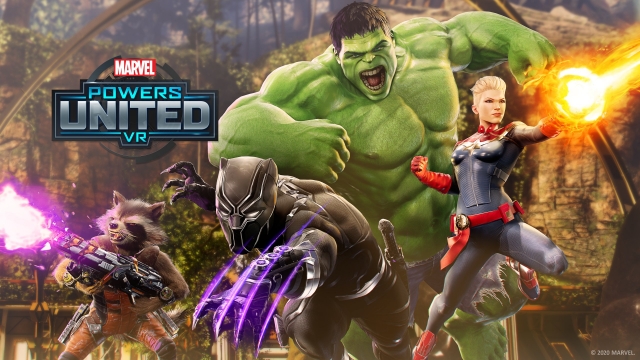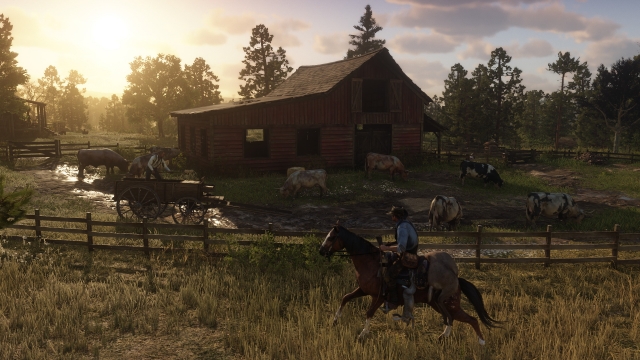
The Oculus Store: A Tale of Digital Permanence, or Lack Thereof
Earlier this month, MARVEL Powers United VR became “dead space”, in the words of an official Oculus email reported by Reddit user Reformation1517. No, it didn’t become a sci-fi survival horror from EA; rather, it became a dead game, the digital equivalent of a paperweight. The Oculus exclusive, released in 2018, caused a stir late last year as one of three Sanzaru-developed games to be removed from the Oculus Store, although existing owners were still able to play it. Several months later, on the 1st March 2021, it ceased to be playable in any capacity. While it’s hard to imagine that many players will miss this particular Marvel tie-in, its seemingly needless shutdown sets a worrying precedent indeed, both for digital rights and videogame preservation in the decades ahead.
Credit: Reddit user Reformation1517
The other two Sanzaru titles to be ejected from the Oculus Store, Ripcoil and VR Sports Challenge, caused less upset. After all, the former was a strictly multiplayer affair—and thus had an inherently limited lifespan—while the latter remains playable to this day. As for the Marvel title, though, people were baffled as to why a game with single-player components needed to be permanently locked down. Some speculated that it came down to an expired license; others suggested that the single-player mode could be linked to online servers in a non-severable way. Whatever the reason behind it, the fact remains that there is now a game with single-player functionality, a game which people paid money for, which is entirely unplayable: dead space.
To make matters worse, players who purchased the game more than six months prior to the announcement were unable to claim a refund on their purchase. They have been left out-of-pocket with nothing to show for it save for a defunct .exe and memories of a dead game.

It’s stories like this which serve as harsh reminders of how impermanent our digital purchases really are. Over the years, we’ve collectively spent billions of pounds (dollars, euros, yen and the rest) on digital games and in-game goods. Would we have done so if we knew that they would be snatched out of our hands less than three years after release? Did we even consider it as a possibility? MARVEL Powers United VR players almost assuredly didn’t, and look how things panned out. Whether we're talking about individual game licenses or entire virtual libraries, the shaky ground our digital goods stand on is worrying—and that's putting it lightly.
Granted, the vast majority of digital single-player games don’t become unplayable after a handful of years, even when they face removal from their respective digital stores. Look at Cyberpunk 2077, Tales From the Borderlands or even the legendary P.T. as examples of titles which were removed from sale yet remained playable. You can rest easy knowing that your digital library won’t go up in digital smoke, say, tomorrow or the day after. In 10 or 20 years, though, who knows? Will Sony or Microsoft still be around in a couple of decades? Will you be able to dust off the old Series X and boot up your digital copy of Red Dead Redemption 2 after so many years? Will Arthur Morgan still be waiting for you, cigar in mouth and six-shooter at the ready? These are questions with no definite answer right now, but servers require upkeep; it stands to reason that they’ll eventually shut down, taking your digital purchases with them. Maybe it's worth asking how we, as consumers, feel about that.

This brings us neatly around to games preservation, the other side of the issue thrust into the spotlight with MARVEL Powers United's collapse. You see, games are part of our culture, even relatively unimpactful ones like MARVEL Powers United. By shutting it down, we've essentially erased that part of our culture forever. Sure, the removal of one Marvel game doesn't feel like that big of a loss, but what about the entirety of Steam? The PlayStation Store? The Microsoft Store? What about all the other digital marketplaces which supply the bulk of our at-home entertainment nowadays? As mentioned, they'll eventually shut down, likely taking our entire libraries with them. Think about the chasm of understanding such a purge would leave for future generations—and eventually even historians.
It's no secret that we, as a species, have lost an inconceivable number of works all throughout history. Whether neglected, misplaced or otherwise destroyed, there's a tragic amount of human culture and knowledge that we'll simply never be able to recover. From the ancient Library of Alexandria (burnt down) all the way to the far more recent lost Doctor Who episodes (intentionally wiped for practicality reasons), people have always struggled to preserve the fruits of their culture. Now, it seems as if gaming, despite the efforts of tireless preservationists, is determined to go the same way.
Now, it's not lost on me that comparing a videogame—a Marvel tie-in no less—to the Library of Alexandria is absurd. I'm not trying to equate the two. I'm only trying to illustrate how long-standing the issue of preservation is. People don't know, or they don't care, about the historical significance of what's around them until it's too late. It's the reason early motion pictures are so hard to come by: most of them were improperly stored, destroyed or else lost. People don't comprehend the importance of archiving until they're looking back on a blank slate of history where a rich and vast culture used to be.
The loss of MARVEL Powers United VR isn't in itself a tragedy, but it's certainly an indicator of a larger issue which should cause your stomach to flutter just a little—whether from a consumer's perspective or a historian's. If we continue down this path, today's games might not make it much further than a decade or two. They could be gone in 50 years and entirely forgotten in 100. Pretty bleak, huh? On a sunnier note, at least it means your successors won't be burdened with your shameful Steam backlog. See! It's not all bad.





COMMENTS